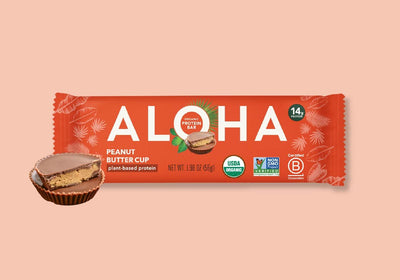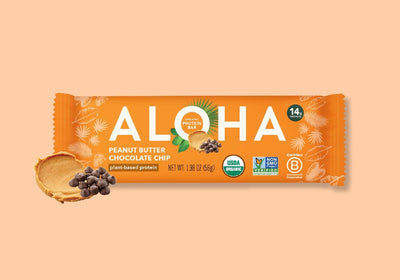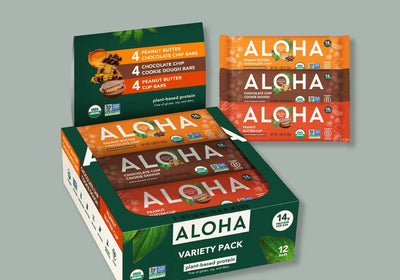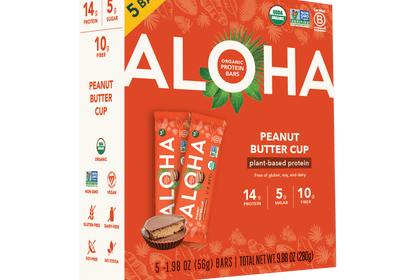Our peanut butter protein bars blend great taste with high protein, making them perfect for anyone needing a nutritious, on-the-go snack. They're popular among athletes and busy individuals for their convenience and nutrient-rich profile, offering a better alternative to traditional, less nutritious snacks. This guide will cover their health benefits and help you choose the right bar for your lifestyle.
Understanding Protein Bars
Protein bars are nutritional supplements designed to be a convenient source of protein. They can also contain various other nutrients, depending on their intended purpose, ranging from high-energy ingredients for athletes. They come in various flavors, with peanut butter being a popular choice due to its taste and nutritional value. Protein bars are ideal for people who need a quick, portable source of nourishment without the hassle of preparing a full meal.
The Nutritional Profile Of Peanut Butter Protein Bars
Peanut butter protein bars are often rich in nutrients and pack a substantial protein punch, courtesy mainly of peanut butter and added protein powders. They generally contain a balanced mix of carbs and dietary fibers, which aid in providing energy and promoting digestion, respectively. The fats in these bars are mostly unsaturated, coming from the peanuts, which are beneficial to heart health.
When To Eat Peanut Butter Protein Bars?
Before A Workout
Consuming a peanut butter protein bar before hitting the gym can provide the necessary fuel for your session. The carbohydrates present in the bar are a quick energy source, while the protein helps protect muscle tissue from excessive breakdown during activity. Choosing a bar with a moderate to high amount of carbs and moderate protein is ideal pre-workout. Time it right — eating a bar 30 to 60 minutes before exercise can keep you powered throughout your regimen.
After A Workout
Post-workout is the prime time for muscle recovery, and a peanut butter protein bar can be an excellent source of protein for muscle repair. The protein accelerates the repair processes and stimulates muscle growth after the strain of an exercise session. A bar with a higher protein and lower carb content is generally recommended for post-exercise consumption. Eating within 45 minutes after a workout can maximize the body's ability to utilize the nutrients for recovery and growth.
As A Meal Replacement Or Snack
Peanut butter protein bars are not just for athletes – they’re great for those busy on the go. A protein bar can offer a balance of nutrients similar to a light meal, perfect for busy days when preparing or sitting down for food isn't feasible. These bars can be a controlled portion of nutrients that satisfy cravings and help prevent overeating. However, always ensure to complement these bars with a variety of foods throughout your day to ensure a balanced diet.
Health Benefits Of Peanut Butter Protein Bars
Satiety And Hunger Control
Peanut butter protein bars can play a significant role in controlling hunger. High in protein and fiber, they help you feel full longer, reducing the urge to snack on less nutritious options.
Nutritional Intake And Balance
These bars offer a plethora of nutrients in a compact package, making them a quick solution to nutritional deficiencies, especially for those with a fast-paced lifestyle. Peanut butter itself is full of healthy fats, vitamins like vitamin E and B complexes, and minerals such as magnesium, which contribute to overall health.
Incorporating Peanut Butter Protein Bars Into A Balanced Diet
Part Of A Meal Plan
Peanut butter protein bars can be integrated into your daily meal plan as a snack or a meal replacement when necessary. They can help you reach daily protein goals, provide sustained energy, and curb hunger between meals. It's important to not rely solely on these bars for nutrition but rather use them as a convenient complement to a variety of whole foods.
Complementing Exercise Routines
For those engaged in regular exercise, peanut butter protein bars can be a strategic addition to your diet. They provide the protein necessary for muscle recovery and complex carbs for replenishing energy stores. When consumed in conjunction with other nutrient-dense foods, they contribute to a well-rounded fitness nutrition plan.
Moderation And Variety
Even with all the benefits protein bars offer, they should be consumed in moderation as part of a diverse diet. To avoid nutrient imbalances and overconsumption of processed foods, mix in other protein sources like lean meats, beans, eggs, and a variety of fruits and vegetables. This ensures you receive a spectrum of nutrients needed for optimal health.
Storing And Preserving Peanut Butter Protein Bars
Optimal Storage Conditions
To maintain the quality and freshness of peanut butter protein bars, store them in a cool, dry place away from direct sunlight. Heat and moisture can cause the bars to spoil or become stale. If the bars contain real peanut butter or other perishable ingredients, they may need to be refrigerated.
Shelf Life Considerations
Check the expiration date on store-bought peanut butter protein bars to ensure they're consumed within the appropriate timeframe. Generally, bars with natural and fewer preservatives may have a shorter shelf life, but they also tend to be healthier. Homemade bars should be eaten within a week or according to the recipe's recommendations if no preservatives are used.
Traveling And On-The-Go
Peanut butter protein bars are designed for on-the-go convenience, so they make a great travel snack. When on the move, keep the bars in airtight containers or resealable bags to protect them from the elements and to maintain their freshness as long as possible. Be mindful of the conditions they'll be stored in, especially if temperatures will be variable.
What To Look For When Buying Peanut Butter Protein Bars?
Ingredient Transparency
A good peanut butter protein bar will have a short and understandable ingredient list. Look for bars that use recognizable ingredients without a long list of additives or artificial substances. Brands like ALOHA pride themselves on using organic and whole-food ingredients, aligning with their commitment to health and transparency.
Nutritional Content
Analyze the nutritional profile for a balance of protein, carbohydrates, and fats, along with a reasonable amount of fiber and minimal added sugars. The protein content should align with your dietary needs, whether for muscle-building, meal replacement, or snacking purposes. Pay attention to the serving size as well to manage calorie intake effectively.
Brand Reputation And Quality
Research the reputation of the brand and read reviews from other consumers. Brands like ALOHA offer insights into their production processes and source their ingredients sustainably, which contributes to the overall quality of the product. It's worth investing in a brand that not only offers a quality product but also shares your values on health and sustainability.
Final Thoughts On Peanut Butter Protein Bars
Peanut butter protein bars serve as a fantastic tool in your nutritional arsenal. Whether you need a quick snack or a post-workout pick-me-up, these bars are packed with both flavor and function. The convenience of protein bars is unmatched, but it's important to remember that they should supplement a diet rich in whole foods. As with any processed food, consumers should aim for balance and moderation. For those looking to include peanut butter protein bars in their diet, ALOHA offers a range of sustainably sourced, nutrient-packed options that make no sacrifices on taste or nutritional value. Remember, the best diet is one that is varied, balanced, and enjoyable – protein bars, when chosen wisely, can fit into this equation beautifully.
Revitalize your nutrition effortlessly with our nutrient-packed Peanut Butter Protein Bars. Experience the power of balanced nutrients in a convenient, on-the-go package. Elevate your health and embrace vitality with every bite!
Frequently Asked Questions About Peanut Butter Protein Bars
How much protein is typically in a Peanut Butter Protein Bar?
Peanut Butter Protein Bars usually contain around 10-20 grams of protein per serving, but this can vary among brands and recipes.
What ingredients are commonly used in Peanut Butter Protein Bars?
Common ingredients in Peanut Butter Protein Bars include peanut butter, protein powder (often whey, soy, pea, or other plant-based proteins), oats, nuts, seeds, sweeteners (like honey or agave), and sometimes additional flavorings like chocolate or fruits.
Are there any Peanut Butter Protein Bars suitable for ketogenic diets?
Yes, some brands offer low-carb Peanut Butter Protein Bars that fit within ketogenic diet guidelines, typically using ingredients like almond flour, coconut oil, and low-carb sweeteners such as stevia or erythritol.
Can Peanut Butter Protein Bars be eaten as a meal replacement?
While they can be a convenient on-the-go option, Peanut Butter Protein Bars may not provide a complete meal's worth of nutrients. They can supplement a meal but might not entirely replace it in terms of nutritional content.
What's the shelf life of Peanut Butter Protein Bars?
The shelf life of Peanut Butter Protein Bars varies but is usually several months if stored in a cool, dry place. Check the packaging for specific expiration dates.
Do Peanut Butter Protein Bars contain added sugars?
Some Peanut Butter Protein Bars contain added sugars for flavor, but there are also options with low or no added sugars. Checking the nutrition label can provide insight into the sugar content.
What are some creative ways to incorporate Peanut Butter Protein Bars into recipes?
Crush or blend Peanut Butter Protein Bars to use as toppings for yogurt or oatmeal, mix them into smoothies, or crumble them over fruit salads for added protein and flavor.
Do Peanut Butter Protein Bars provide sustained energy?
Yes, due to their protein content, Peanut Butter Protein Bars can offer sustained energy when consumed, helping to keep you fuller for longer and providing a gradual release of energy.

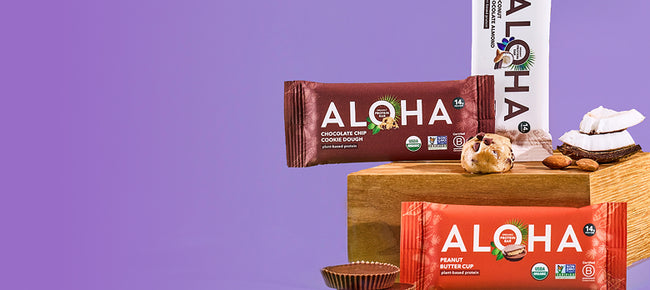 collection header image
collection header image
 collection header image
collection header image
